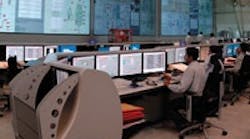By B. R. Mehta, S. W. Dhoke and Y. P. Buch
In 2008, Reliance Petroleum Ltd., a subsidiary of Reliance Industries Ltd. (RIL), completed a major construction project for the creation of a second refinery, adjacent to an existing Reliance refinery at Jamnagar, Gujarat, India. The new facility has a crude processing capacity of 580,000 barrels per day, while the associated polypropylene plant has a capacity of 0.9 million metric tons per annum (MTPA).
The new refinery has a Nelson Complexity Index of 14.0, which makes it one of the most complex refinery facilities in the world. When combined with its distillation capacity, that also ranks it among the top 10 global refineries.
The original refinery and new refinery complex at Jamnagar together have more than 50 process units, and have achieved gross refining margins (GRMs) consistently higher than the benchmark Singapore complex margins. The refinery is equipped to refine sour crude, sweet crude or a mixture of both, is capable of processing low-quality crude, and manufactures various grades of fuel from motor gasoline to aviation turbine fuel (ATF). The associated petrochemicals plants produce plastics and fiber intermediates.
The new facility was designed for zero production of low-value "black oils," such as fuel oil. A typical refinery produces 12% to 20% black oils on crude processed. With the high proportion of high-value products, such as propylene and LPG, it is anticipated that the new refinery will provide similar or higher GRMs than the original facility. The combined facilities have a capacity of more than 1.2 million barrels per day.
Because the facility is so large and complex, Reliance wanted to be sure that it will operate at its optimum as quickly and as long as possible between outages. This was a primary driver for the use of smart field devices, and in particular Foundation fieldbus, to prepare the facility to be able to maintain the GRMs in the new integrated operation.
Invensys Operations Management (IOM, http://iom.invensys.com) was chosen as the DCS provider, and preliminary discussions led to adoption of an integrated approach of Foundation fieldbus across the facility. Approximately an additional 50,000 conventional analog, non-Foundation fieldbus tags were delivered as part of package plants and safety systems. Invensys and Reliance worked closely with MTL Instruments (www.mtl-inst.com) to develop project-specific Foundation fieldbus power supplies and customized intrinsic safety (IS) interface backplanes.
Reliance engaged MTL in discussions about the project at a very early stage to assist it with a Foundation fieldbus instrumentation philosophy for the new site. Part of that philosophy included identifying the benefits of network diagnostic tools for the Foundation fieldbus physical layer.
In response to this input and demand from related markets, MTL developed the F809F Fieldbus diagnostic module to monitor the health of the fieldbus segments and to provide a unique overview of the physical layer status embodied in the Foxboro DCS from Invensys. As a Foundation fieldbus device, the diagnostic module communicates directly with the network control system and facilitates the seamless integration of physical layer diagnostics into the Foxboro DCS and, hence, directly to the IPS Field Device Manager.
Reliance also adopted a policy of maximizing "live working," which is the ability to work wherever possible on a field device in any area classification, much like Intrinsic Safety systems. It is a requirement of Foundation fieldbus systems because FF devices must be connected to a network for communications during maintenance.
Based on these requirements and the distribution of equipment in the facility, a high-energy trunk approach was chosen, using Fieldbus barriers to enable live working on the IS spur connections, while also supporting power supply redundancy and long trunk length where required. Both the Reliance/Bechtel project team and the Reliance maintenance staff worked closely with MTL to design and optimize custom junction boxes for the fieldbus barriers to provide live connection and disconnection of the fieldbus barrier trunk connection without the need for a gas clearance certificate.
During construction, regular in-depth, practical Foundation fieldbus training was provided to Reliance's staff by the project partners. This allowed them to respond quickly and effectively to changing conditions when the plant came on-line.
During the project's start-up phase, 200 of the key commissioning staff received additional training on how to take full advantage of the comprehensive troubleshooting guidance.
Using the fieldbus diagnostic module helped minimize the time required to commission the system and capture an accurate baseline condition for the network that can be used as a benchmark for future system health.
This system simplified the commissioning process, and gave the engineers the insight to solve problems during the start-up phase and in the longer-term running of the plant. In addition, during commissioning, on-site support by all participants (Invensys, Bechtel and MTL working closely with trained site staff) helped resolve any problems during this important stage.
With the JERP refinery operation stabilized at capacity, Reliance is now able to explore the asset management capabilities delivered through Foundation fieldbus technology, with the expectation of reaping rich operations expense benefits. Toward that end, the staff at Reliance is investigating additional methods for improving its operations and maintenance practices:
- Migration from a preventative to predictive maintenance environment to prevent abnormal situations that typically lead to unscheduled or emergency maintenance activities.
- Enhanced diagnostics and signal quality. Foundation fieldbus devices provide status and signal-quality messages with every process variable update and communications/scan cycle. This information not only informs the operator that the signal is valid, but also can be used by the control algorithms to implement control only on valid signals.
- More accurate sensors. A combination of more accurate sensors and status information results in higher sustained production.
- Improved planning and scheduling of outages.
- Reduction in maintenance costs.
- Improved loop operations. Problem loops can be analyzed remotely and continuously monitored for typical control loop problems, such as cycling control loops, sticking measurements, sticking valves, control wind-up, questionable measurement changes and questionable control changes.
Because Foundation fieldbus uses DD files and EEPROM to store the device configuration, the field sensors can be upgraded in-line, so the facility is always able to take full advantage of the latest capabilities, including diagnostics for the field devices.
The JERP project has demonstrated that, with the proper team and cooperation, it is possible to implement the latest communications technology in a challenging environment in a timely fashion.
B.R. Mehta is Senior Vice President (Design); S.W.Dhoke is Senior Vice President (Projects) and Y.P. Buch is Senior Vice President (Operations) at Reliance Industries Ltd.




